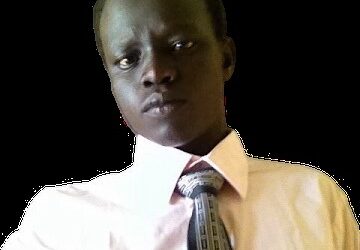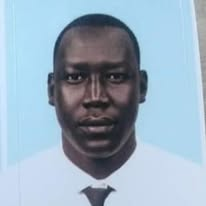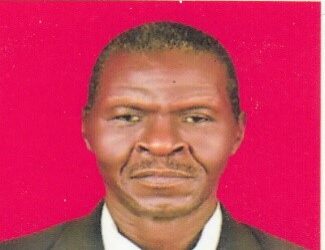Two weeks ago, precisely on July 9, 2025, we celebrated our country’s fourteenth Independence Day Anniversary.
We raised our flag high, singing songs of freedom, hope, and a new beginning. This independence, born of decades of immense sacrifice, courage, and fierce determination to overcome oppression and marginalization, was our ultimate victory. Over 2.5 million brave souls laid down their lives for the dream of a South Sudan founded on freedom, justice, equality, and unity – a land with no second-class citizens, no marginalized groups, no tribe or region dominating resources, but where all share equal dignity. Our heroes and heroines fought for tangible liberation: institutions delivering basic services like roads, quality schools, functioning healthcare, peace, security, and the opportunity for our people to cultivate their lands and live progressive, prosperous lives.
Yet, as we mark this 14th anniversary, a profound question weighs heavily: Are we truly independent? Is this the South Sudan we fought for? What is independence that cannot feed the hungry, treat the sick, or protect the vulnerable? We broke external chains, but remain bound by self-inflicted fetters of poverty, conflict, and fear. Tragically, the immense promise of liberation remains largely unfulfilled. Have we not betrayed their sacrifice? Instead of uniting to combat the real enemies – poverty, illiteracy, disease, crumbling infrastructure, insecurity, and the absence of lasting peace – we have turned inward. Our focus has dangerously shifted to an intense, often violent, struggle for political power and government positions. This internal wrangling consumes our energy and resources, leading to displacement, hardship, and economic instability, while the fundamental work of delivering essential services takes a backseat. Positions become ends in themselves, not tools for service. Consequently, our people suffer: families have nothing to eat, their children drop out of school, curable diseases claim lives daily due to lack of treatment and medicine, crime surges, inflation soars, the economy weakens, and unemployment runs rampant. How can we speak of independence when a mother cannot find a medicine for her child, or a farmer cannot safely cultivate his land? The government, struggling to meet its mandate, often seems deaf to these cries, even as its members seek services abroad.
A troubling distortion of our social fabric compounds this crisis. Community, youth, and student associations, inherently non-political entities meant to preserve culture and identity, have been hijacked. Due to the disorganization of political parties and the pervasive “mess” in the country, these associations have wrongly assumed the role of political vehicles. Politicians and army generals in civilian suits, seeking a ladder back to power, and others fueled by self-interest, have politicized them, turning communities into sources of division, competition, and struggle. This interference fragments our social unity and distracts from the real work of nation-building. While cultural organization is vital, community associations must not become proxies for political ambition that undermines the state.
Our collective behaviour often reflects a painful truth: we excel at “talking the talk” but falter at “walking the walk.” The level of corruption escalates while people live below the poverty line. Speaking truth to power risks branding or charges, yet silence allows critical issues to fester. Independence loses meaning when basic needs – shelter, education, health, roads, and fair, regular wages – go unmet. Denying salaries is denying the right to life. We see the shame of relying on neighbours like Uganda and Kenya, or Sudan (before her internal conflict erupts in April 2023), for food, and even basic infrastructure in our capital is being built by foreign hands. We must ask: What is the worth of our hard-won South Sudaneseness if it cannot sustain the life it claims to define? Identity without dignity is an empty vessel.
However, amidst these stark realities, the flame of hope ignited by our martyrs cannot be extinguished. We honour their iconic contributions, their determination, heroic patriotism, and resilience. Their blood cemented our foundation; their dream of freedom demands more than remembrance – it demands a renewed commitment to peace, reconciliation, and justice. Our generation must not let the past solely define us, nor allow our youthfulness to be a limitation; it must be our strength. The Catholic Bishops’ recent call for a comprehensive solution to our political, social, security, and economic crises resonates deeply. We need a clear roadmap forward.
The solution lies not in tribal conflict or the naive belief that any single tribe can claim victory or build this nation alone. The only path is unity. All tribes that formed South Sudan must unite, embrace peace, love one another, and work collectively. We must say “enough” to the cycle of loss. It is not too late to change. We need leadership that defies despair, leadership that recalls the youthful inspiration that fueled the liberation struggle and channels it into a “war of development.” Leaders must rise above individual egoism, be ambitious to serve, and prioritize tangible projects over self-preservation. We must utilize our abundant resources efficiently and effectively for the benefit of all our people, disassociating from detrimental external influences. The youth, constituting the majority, have a vital role in peacebuilding, nation-building, and economic transformation through unity, innovation, and hard work.
Therefore, on this Independence Day, let it be more than a memory; let it be a living promise and a profound responsibility. Let us renew our commitment to building the South Sudan our martyrs dreamed of: united, peaceful, and prosperous. Let us choose reconciliation over division, service over self-interest, and action over empty words. Let us honour their sacrifice by finally conquering the conditions of oppression we impose on ourselves and building a future where every South Sudanese can eat, learn, heal, walk safely, dream, and thrive in dignity. The nation persists; it is time our actions match the magnitude of the freedom we were gifted.




